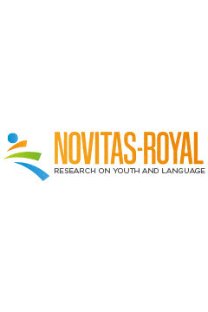Media Education in English Language Teaching -Not our job?
Bu çalışma eğitimsel medya politikasını ve Almanya’daki bununla bağlantılı kavramları Almanya’daki okullardaki mevcut durumla karşılaştırarak tartışmaktadır. Çalışmada, medya okuryazarlığı kavramı ve onun toplumsal rolü incelendikten sonra, medya eğitiminin İngiliz dili eğitimi ders programlarındaki yeri ve İngilizce öğretmenlerinin sınıflarında medya eğitimine verdikleri yer tartışılarak ele alınacaktır. Çalışmaya dayanak oluşturan veriler anket çalışmaları yoluyla Almanya’daki İngilizce öğrencileri ve öğretmenlerinden toplanmıştır. En önemli bulguların sunulmasından sonra, İngilizce sınıflarındaki medya eğitimini geliştirmek amacıyla somut öneriler sunulmuştur.
This study discusses educational media policy and related concepts in Germany, contrasting it with what in fact happens at school. After analyzing the concept of media literacy and its role in present society, the questions whether media education should form part of EFL lessons, and up to which extend EFL teachers could be expected to attribute a central role to the integration of media education in their classes will be focused. Data for this research come from questionnaires collected from students and teachers of English in German schools. After the presentation of the major findings, suggestions are made to improve the quality of media education in ELT classrooms.
___
Arnold, R., & Pätzold, H. (2005). Schulpädagogik kompakt: Prüfungswissen auf den Punkt gebracht. Studium kompakt. Berlin: Cornelsen Scriptor.Boisot, M. H., & Canals, A. (2004). Data, information and knowledge: Have we got it right? JEE, 14,43–67.
Günther, J. (2002). Die neue Mobilität der Gesellschaft. Innsbruck: Studien-Verl.
Hentig, H. von. (1999). Ach, die Werte!: Ein öffentliches Bewußtsein von zwiespältigen Aufgaben; über eine Erziehung für das 21. Jahrhundert. München: Hanser.
Kohn, M. (2003). Leitfaden moderne Medien: PC-Einsatz im Englischunterricht. Unterrichts-Perspektiven Fremdsprachen. Hannover: Schroedel.
Lyon, D. (2003). Surveillance technology and surveillance society. In T. J. Misa, P. Brey, & A. Feenberg (Eds.), Modernity and technology. Workshop Proceedings. University. of Twente in the Netherlands, November, 1999 (pp. 161–183). Cambridge, Mass.: MIT Press.
Maglić, M. (2006). Computer & Co. an der Integrierten Gesamtschule Holweide.: Beobachtungen und Handlungsempfehlungen zu Mediennutzung und Medienkompetenz. 2. Staatsexamensarbeit, Landesprüfungsamt Nordrheinwestfalen. Dortmund.
Phillips, D. J. (1997). Cryptography, secrets, and the structuring of trust. In P. Agre, & M. Rotenberg (Eds.). Technology and privacy. The new landscape (pp. 243–276). Cambridge, Mass.: MIT Press.
Poster, M. (1996). The mode of information: Poststructuralism and social context. Cambridge: Polity Press.
Rüttgers, J., & van Dinther, R. (2006). Grußwort: Der Tag der Medienkompetenz im Landtag NRW. NRW, Germany: Landtag. Retrieved March 12, 2007, from www.tagdermedienkompetenz.de
Wilson, R. Anton, & Hill, M. Joan. (1998). Everything is under control: Conspiracies, cults, and cover-ups. New York: Harper Perennial.
- ISSN: 1307-4733
- Yayın Aralığı: Yıllık
- Başlangıç: 2007
- Yayıncı: -
